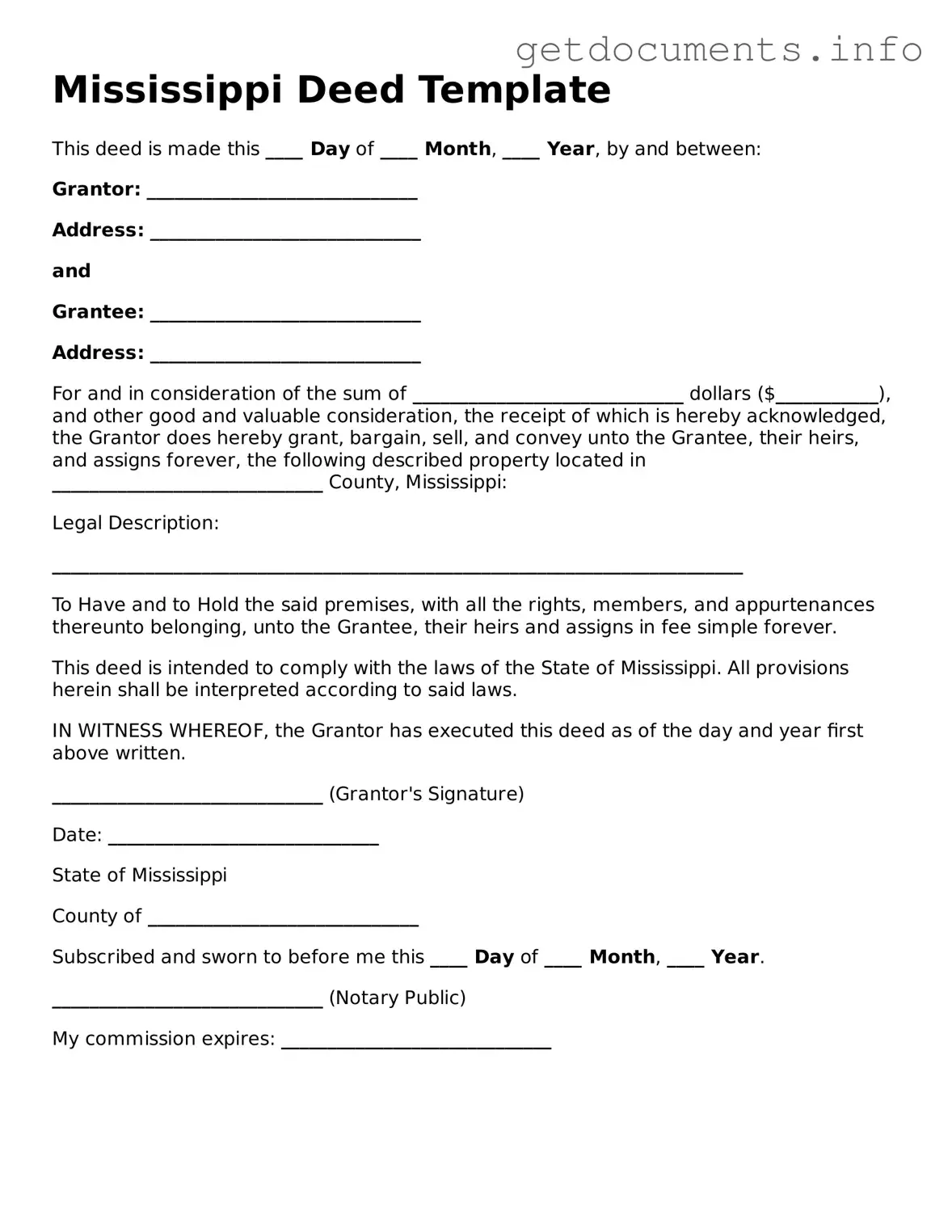Free Deed Template for Mississippi
A Mississippi Deed form is a legal document used to transfer ownership of real estate from one party to another. This form outlines important details such as the property description, the names of the buyer and seller, and any conditions of the transfer. To ensure a smooth transaction, it’s essential to fill out this form accurately; click the button below to get started.
Access Deed Editor

Free Deed Template for Mississippi
Access Deed Editor
Got places to be? Complete the form fast
Fill out Deed online and avoid printing or scanning.
Access Deed Editor
or
⇩ PDF File
